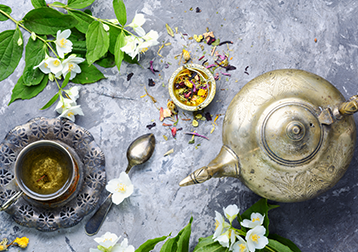Arabic & Islamic Medicine

Islamic medicine, also known as Prophetic medicine or Tibb al-Nabawi, refers to the body of medical knowledge and practices that developed in the Islamic world, particularly during the Islamic Golden Age (8th to 14th centuries). This system of medicine is deeply rooted in both the teachings of the Quran and the Hadiths (sayings and practices of the Prophet Muhammad) and the extensive knowledge and discoveries made by Muslim physicians and scholars during this period.
Key aspects of Islamic medicine and health systems
- Integration of Religious and Medical Knowledge: Islamic medicine is heavily influenced by the teachings of Islam. It often integrates spiritual practices and religious beliefs with medical treatment. For example, the use of Quranic verses or prayers for healing is common.
- Holistic Approach: Similar to other traditional systems of medicine, Islamic medicine takes a holistic approach, focusing on the physical, mental, and spiritual well-being of the individual. Diet, life style, and moral and ethical conduct are considered crucial to maintaining health.
- Influences from Other Cultures: Islamic medicine absorbed and expanded upon the knowledge from the Greek, Roman, Persian, and Indian medical traditions. This cross- exchange significantly advanced medical knowledge in the Islamic world.
- Significant Contributions to Medical Science: During the Islamic Golden Age, Muslim physicians and scholars made significant in areas such as pharmacology, anatomy, ophthalmology, surgery, and infectious diseases. Figures like Avicenna (Ibn Sina), who wrote the influential “Canon of Medicine,” and Al-Razi (Rhazes) were pivotal in this development.
Use of Herbal Remedies and Pharmacology: Islamic medicine emphasized the use of herbal medicines and developed sophisticated pharmacological practices. The compilation of extensive encyclopedias of medicinal substances was a notable achievement of this period. - Ethical Medical Practice: Ethical considerations and the welfare of the patient were significant concerns in Islamic medicine. The teachings of Islam heavily influenced the moral conduct of physicians.
Today, some aspects of Islamic medicine continue to be practiced, particularly within communities that prefer traditional healing methods aligned with their cultural and religious beliefs. However, it’s important to distinguish between the historical contributions of Islamic medicine to modern medical science and the more spiritual or traditional practices that may not align with contemporary evidence-based medicine. As always, it’s advisable to consult healthcare professionals for medical advice and treatment.









